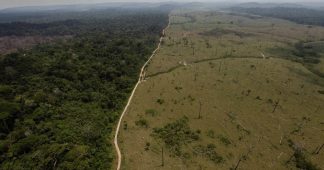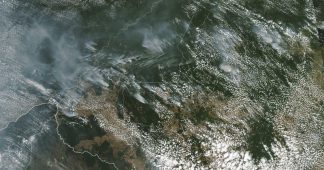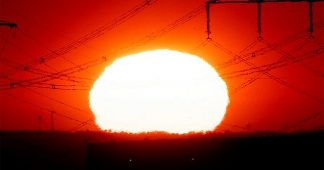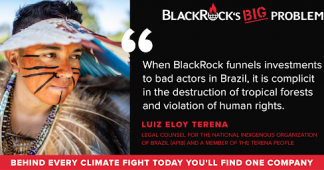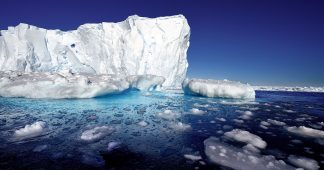Heat Wave in Greece, Around the World Sets New Records
Bella Kontogianni
A heat wave has impacted people in Greece and all across the world, even leading to tragic deaths in Canada.
In Greece, the heat wave began last Tuesday and is forecast to continue until next weekend. The sweltering heat has made scientists increasingly concerned, as they see this as a manifestation of the irreparable damage humans have caused to the planet due to climate change.
A heat wave hitting Siberia has led to records for the warmest recorded temperature in the area, being broken twice during the first month of summer alone.
Land temperatures in the Arctic Circle have climbed to 48 degrees Celsius (118 Fahrenheit), in what has been referred to as a “persistent heatwave” in Siberia by the EU’s Copernicus Program.
Read more at greekreporter.com
Which Areas Will Climate Change Render Uninhabitable? Climate Models Alone Cannot Say
June 17, 2021
Scientists often rely on global climate models and high-level data to anticipate which regions of the world will face flooding, droughts, and other hardships in the future. We use those models to communicate the urgency of climate change and to provide a general sense of which regions are likely to be high-risk ‘hotspots,’ and therefore potentially uninhabitable in the future. Yet, as we learned during the 2019 Managed Retreat Conference at the Earth Institute at Columbia University, that approach isn’t always welcomed by communities at risk. Top-down modeling approaches can contribute to a climate determinism that minimizes the potential for human ingenuity to find creative, locally appropriate solutions. Privileging likely future climate impacts can also come across as tone deaf in communities that have suffered redlining and racist land grabs.
Continue reading at news.climate.columbia.edu
Fire season intensifies in the Brazilian Amazon, feeding off deforestation
by Liz Kimbrough
on 1 July 2021
Twenty-four major fires have burned in the Brazilian Amazon so far this year, all of them set on land previously deforested in 2020, until this week when the first major blaze was set on land cleared in 2021.
Experts are expecting this to be a bad year for fires, owing to a historic drought, high levels of deforestation, and a lack of funding for environmental law enforcement.
President Jair Bolsonaro signed a decree on June 23 to send Brazilian soldiers into the Amazon to curb deforestation (which often precedes fires), but one expert calls this a “smokescreen” that would allow deforestation to continue.
Deforestation rates have been higher under Bolsonaro than any past president: in 2020, Brazil lost a Central Park-sized area of forest every two hours, and on the day with the highest rate of deforestation, July 31, an estimated 2 million trees were cut down.
Continue reading at news.mongabay.com
Summer Forecast: Dangerous Heat, Fire, and an Active Hurricane Season
June 28, 2021
Climate change may be loading the dice for a difficult summer, according to researchers at Columbia University’s Lamont-Doherty Earth Observatory.
Temperatures associated with the heat wave gripping the Pacific Northwestern U.S. have reached unprecedented highs. Triple-digit readings broiled parts of Oregon and Washington over the weekend, a region where the average June temperatures are typically in the 70 degree range. In Portland, Oregon, one county health official put it this way: “This is life-threatening heat, and people need to find someplace cool to spend time during the coming days.”
Continue reading at news.climate.columbia.edu
